Does Grass and Weed Killer Kill Bushes?
I planted some bushes 8 months ago and now some weeds and bermuda grass have emerged and are now thick and touching the bushes (and possibly stealing nutrients). I'm thinking of brushing some Spectracide Weed and Grass Killer on the grass blades but am afraid that if I water the bushes some of the weed killer might spread to the bushes and kill them. Any ideas?
Comments (22)
kimcoco
12 years agolast modified: 9 years agoMy neighbor did this along the fenceline to kill the grass that he didn't want to weedwhack on his property, unbeknownst to me, and I wondered thereafter why all my plants, including shrubs, started browning. I had to scold him.
Don't do it.
ken_adrian Adrian MI cold Z5
12 years agolast modified: 9 years agoproper application of roundup or the generic will take care of it..
i like your brush/roller idea .... it will have no effect on the soil.. and you eliminate drift ... it has to be applied to green material..
read and follow all instructions ...
i do not know anything about the stuff you talk about ...
ken
Related Professionals
Birmingham Landscape Architects & Landscape Designers · Parole Landscape Architects & Landscape Designers · Wixom Landscape Architects & Landscape Designers · Brownsville Landscape Contractors · Golden Gate Landscape Contractors · La Vista Landscape Contractors · New Cassel Landscape Contractors · Pine Hills Landscape Contractors · Quincy Landscape Contractors · Granite City Window Contractors · Muttontown Window Contractors · North Aurora Window Contractors · Fredericksburg Decks, Patios & Outdoor Enclosures · Hockessin Decks, Patios & Outdoor Enclosures · Westford Decks, Patios & Outdoor Enclosuresrhizo_1 (North AL) zone 7
12 years agolast modified: 9 years agotonya, the product you've mentioned is a non-selective, systemic herbicide. It will kill or severely injure any plant that even a whiff of the mist comes into contact with. Most people don't have any grasp how easily these products travel through the air, especially if it's humid.
Please read the directions carefully about how to use this product properly.
gardengal48 (PNW Z8/9)
12 years agolast modified: 9 years agoThe label does indicate that it is safe to use around shrubs and trees but I'd take that with a grain of salt. As Dorie/Rhizo indicates, contamination/exposure of non-target plants is very easy, even if applied directly - not sprayed - on the weeds and grasses.
I know many folks think it is a PITA, but manual removal of any weeds or grasses immediately surrounding the trees or shrubs is a much better idea. Save the herbicide for areas where valued plants are not present. Weeds and the migration of bermuda grass into planting areas is ALWAYS going to be an issue so you will be looking at reapplying the product often. The more often applied, the greater the risk of damage to valued plants.
Investigate ways you can reduce the weed/grass issues without having to resort to chemicals or a lot of manual hand weeding - regular edging of beds when you mow or physical barriers between the lawn and planting areas, low impact pre-emergents, mulching to reduce weed occurrence, etc.
brandon7 TN_zone7
12 years agolast modified: 9 years agoAs Ken already said, glyphosate/"plain" RoundUp is non-volitile (will not vaporize). Spray drift can be a problem (especially on windy days), but if applied with a brush/roller/dropper/whatever, cannot vaporize and drift to other plants.
Glyphosate is also not known to translocate between different types of plants. So, for instance, will not move from a weed, on which it is applied, to a shrub next to that weed.
I would feel completely (100%) safe correctly applying glyphosate to weeds around my shrubs.
brandon7 TN_zone7
12 years agolast modified: 9 years ago"The product in question is NOT glyphosate."
The product that Ken and I mentioned WAS glyphosate! Review above text.
"btw, there is quite a body of scientific data supporting the translocation of glyphosate residues in the soil to non-target plants"
Never seen this proven before. I've seen suggested proof of it disproven a bunch of times, but no credible cases have come to my attention yet. As a matter of fact, I've talked to some pretty famous people that should be "in the know" about this issue, and they say no. Sometimes it's pretty hard to prove a negative, but this has been reviewed enough for me to feel 100% safe! Besides, we're only talking about a shrub. If the odds were even as low as thousands to one, that's probably safe enough.
ken_adrian Adrian MI cold Z5
12 years agolast modified: 9 years agoyes gal .. i clearly stated i knew nothing about what tony wanted to use.. and suggested an alternative of which i PROPERLY USE hundreds of gallons per year on my 5 acres.. WITH NO PROBLEMS...
tony ... its all about PROPER APPLICATION ...
and if you use roundup... and touch no green of any plant ... you will kill what you want to kill and nothing else...
and even then.. unless you hit about 50% of a plant you do want.. there will be little or no impact ...
there does have to be a critical mass of goo put on any given plant.. not just a drop or two ...
and it should have no impact on bark.. vs green leaf or cambian ...
ken
brandon7 TN_zone7
12 years agolast modified: 9 years agoKen, I want to know when you have time to apply hundreds of gallons of anything? Do you get up after dark, after GardenWeb's closed, and do it? (-;
One thing about impact with application on bark...be careful about that advice. On young trees and shrubs getting glyphosate on bark can be a problem. On most mature trees, it's not an issue, but some shrubs and some mature trees I'd try to keep even bark-exposure to a minimum.
jcalhoun
12 years agolast modified: 9 years agoThe original poster mentioned the product is Spectracide not Roundup.
I have used both and found the Spectracide to be be pretty potent stuff. I don't remember what it's active ingredients are but glyphosphate is not one of them. It claims to be safe around shrubs, trees, etc but I'm not really sure how it's ingredients work.
This is why I went back to using Roundup around my beds and trees.
tsugajunkie z5 SE WI ♱
12 years agolast modified: 9 years agoBrandon, this is not directed at you, so don't take it that way, but more toward your sources. It seems like the mantra from Monsanto whenever an issue is raised against them is "no credible cases have come to (our) attention". It is their catchphrase. It strikes me as odd that the same catchphrase was used earlier this year when Don Huber, professor emeritus at Purdue University warned of some nasty pathogens in the soil of Roundup ready GMO crops. Heck, that catchphrase goes all the way back to Monsanto and Anniston, Alabama...maybe even further.
tj
WendyB 5A/MA
12 years agolast modified: 9 years agoSpectracide Weed and Grass Killer is listed as a non-selective herbicide the same as Roundup. Non-selective means kills anything. True, it does not contain glyphsophate, but I still would take care anywhere near good stuff.
Regarding translocation at the root level, I do think that some weeds with nasty networks of roots that are intermingled with other root networks are at risk for weed-killer translocation. Not so much via the soil (but perhaps), but via root-to-root contact.
One tip I use for reducing weed introduction into my yard is to remove and replace the top inch of soil from container grown plants that I bring home. I do this in my potting shed in a plastic tray and discard the debris in the trash. Paying attention to this tip early on would have eliminated an incredible clover invasion I have in some of my beds. And you really have to be vigilant right around the crown where tiny seedlings/seeds are hiding.
gardengal48 (PNW Z8/9)
12 years agolast modified: 9 years agoFYI, I've linked to a few of the numerous scientific articles that document gylphosate's ability to be translocated to other plants via the soil. Many of these studies deal with agronomic issues and crops as that's where the economic focus of glyphosate and RR plants are concerned but the same issues translate just as readily to more ornamental landscape plants.
http://www.fluidjournal.org/1gsdgfs-S10/S10-A4.pdf
http://www.notill.org/LE_Articles/V8N3A3_preview.pdf
http://fhrfarms1.com/docs/Articles/Fluid%20Fert%20%202-10.pdf
Glyphosate is exuded from the roots of treated plants into the soil. It persists and accumulates in soil and plants for extended periods - years - and is not considered 'biodegradable' in the common sense of the word. It is desorbed from soil particles by phosphorus and is available for root uptake by all plants. It is toxic to soil organisms that facilitate nutrient access, availability, or absorption of nutrients and inhibits the uptake and translocation of Fe, Mn, and Zn at very low, non-herbicidal rates. It can alter/diminish the ability for nitrogen fixation and impacts photosynthesis. And it stimulates soilborne pathogenic and other soil microbes to reduce nutrient availability.
Tying up or binding essential micronutrients is one of the primary and somewhat unknown or unrecognized issues with the use of glyphosate and its residues in the soil, as the effects of these deficiencies is most often attributed to other causes - drought, soil pH, extreme temperatures, etc.
Again, "safe" is relative. There will always be considerations when using chemical pesticides that may not be immediately obvious or well-publicized. Using them depends on the homeowner's priorities, with the understanding that there may very well be unforseen complications and that perhaps other, lower impact methods of control should be evaluated and considered.
brandon7 TN_zone7
12 years agolast modified: 9 years agotsugajunkie,
My source is NOT Monsanto, and I wouldn't put a lot of stock in assurances, from a company like that, about the safety of their own product. That would be like the fox telling the chickens that his teeth aren't sharp. What I do put stock in is the many experts and professors I've talked to about this very issue and the many studies and presentations at various professional and educational seminars, many of which were addressing this exact subject. My "summary" above may be oversimplified for a theoretical understanding of the subject, but I'm very confident in it's relevance and applicability for practical landscaping situations (like what this thread is all about).
I'm not going to go into detail about GG's linked articles, except to say that in my opinion most of the material is not relevant to this situation. I started to go though point-by-point to address what is relevant, but it's just not worth the time in this thread. At the risk of oversimplification, I'll just say that if soil contamination (as described in GG's articles and text) was a big issue, a large percentage of landscapes today would be doomed or at least showing signs of a problem. I've never had any problem with this chemical in this application and have never heard of anyone that was able to prove any link to a problem from using glyphosate in this manor and with normal application rates/usage.
I think the chances of having a serious accident on the way to buy the herbicide is much greater than the likelihood of the glyphosate (properly applied) damaging Tonyastro's bushes, with limited (what I'd call normal) use.
tsugajunkie z5 SE WI ♱
12 years agolast modified: 9 years agoBrandon, I certainly see your point with regard to commercial vs landscape applications but no one is studying landscapes- only commercial applications. And if the info gardengal shared wasn't bad enough with respect to side effects on plants and soil, Don Huber's letter this year to the USDA should certainly give one pause...even in the home landscape.
tj
Here is a link that might be useful: Huber Letter
gardengal48 (PNW Z8/9)
12 years agolast modified: 9 years agoBrandon is certainly entitled to his opinion, as am I. The difference is that the information I linked to is not my opinion but evaluated and reported analyses of plant and soil scientists that make their life's work studying these issues. If Brandon feels himself qualified to refute these professionals, so be it :-)
And my experience with these matters is not insignificant. I am a consulting horticulturist and licensed pesticide consultant and make my living diagnosing and evaluating plant and gardening issues for a wide range of clients. I encounter herbicide damage frequently in my business.....it is not nearly as uncommon as some would have you believe. It is pretty much a stretch to consider ANY chemical herbicide (or other pesticide, for that matter) completely "safe". They all have environmental implications that may not be readily apparent to the casual user, i.e., the homeowner. And some can be quite significant. Many of these products have not been studied or tested to the same degree that glyphosate/RoundUp has and ongoing testing may result in their usage limited or even banned. And even with all the decades of study and testing glyphosate/RoundUp has received, the jury is still out on the ultimate 'safety' of this product with respect to the environment and non-target organisms. Even many so-called 'natural' or 'organic' pesticides can have potentially toxic effects on non-target organisms as well, including beneficial insects, aquatic life, humans and other mammals and both soil biology and soil chemistry. 'Natural' does not necessarily translate to safe, either.
While I am not trying to dissuade anyone from using a registered herbicide/pesticide when necessary or appropriate, it should be done with a certain amount of caution and with all necessary precautions taken. And only according to the dosage and application methods listed on the product labels, which are legally binding documents in themselves.
brandon7 TN_zone7
12 years agolast modified: 9 years agoTJ,
Actually, that's not the case. Quite a few studies, related specifically to landscape use of glyphosate, have been conducted. Other studies, that were of a more general nature, have been carefully analyzed for landscape application. The crop-side receives more attention and more effort, but a lot of work (mainly from university studies) has been done on the landscape-side too.
One aspect of the landscape-related aspects, that I think may need more work, is long-term use. I have seen studies and analysis regarding long-term use in landscapes (mainly regarding woody plants) and orchards (a different situation than RoundUp ready crops), but not enough. From what I've seen, the verdict is still out to some degree on long-term, repeated use around woody plants, and I have seen professional orchardists expressing concern about the long-term use of this product. I don't think this applies to Tonyastro's situation, however, where we are talking about a single application or a small number of applications over a period years.
_______________GG,
I didn't try to change your words or significantly twist what you had to say, and I don't see why you felt the need to do that to my post. Apparently, you didn't even really read what I wrote, because, if you did, you are intentionally trying to confuse the nature of what I wrote to support your position. What I wrote wasn't just my opinion. It's the conclusions drawn by many (the vast majority, that I've run into) professionals and educators that study herbicides.
BTW, the emoticons that you, specifically, seem to always use to "disguise" obnoxious and rude comments, don't really do the job. For me, they kinda did at first, but the pattern in which they repeatedly show up in many of your posts (after rude comment, after rude comment, after rude comment), has made their real meaning evident and even seem to amplify and call attention to the cheap shots.
gardengal48 (PNW Z8/9)
12 years agolast modified: 9 years agoI didn't try to change your words or significantly twist what you had to say, and I don't see why you felt the need to do that to my post.
I'm not at all clear on how I am twisting your words. It was not clear that you were suggesting glyphosate/RoundUp in place of the Spectracide....sorry if I mistook your intent, but I assumed we were all taking about the OP's product. That WAS the question, afterall.....
Apparently, you didn't even really read what I wrote, because, if you did, you are intentionally trying to confuse the nature of what I wrote to support your position.
Oh, I read it! And you very clearly stated that the stuff is "100% safe" and "is not known to translocate between different kinds of plants". I merely pointed out that this position is not supported by a significant amount of scientific evidence. And in refutation you said you have seen no "credible" evidence to support this and "famous people in the know" say it can't/doesn't happen. But you gave no cites to support this statement, whereas I provided several to support mine. How "famous" the authors of these articles are, I have no idea, but they are qualified and trained scientists and they do support and document their theses with various other, equally well-qualified sources.
What I wrote wasn't just my opinion. It's the conclusions drawn by many (the vast majority, that I've run into) professionals and educators that study herbicides.
But you neglected to provide ANY cites or documentation to support that it was anything more than just your opinion. And what exactly constitutes the 'vast majority'? Five? Twenty-five? Fifty? You provided none. What's more, you clearly stated that in your "opinion most of the material is not relevant to this situation". Yet you don't bother providing anything other than your 'opinion' to support this statement nor do you give us any reason why your 'opinion' should necessarily be held in greater value than those scientists whose work I reported. Maybe you have some detailed scientific background that we are not aware of?
BTW, the emoticons that you, specifically, seem to always use to "disguise" obnoxious and rude comments, don't really do the job. For me, they kinda did at first, but the pattern in which they repeatedly show up in many of your posts (after rude comment, after rude comment, after rude comment), has made their real meaning evident and even seem to amplify and call attention to the cheap shots.
I was attempting to keep the tone rather light. Apparently I failed. I am well aware of your propensity to refute or argue against everything I say and was trying quite hard not to become unnecessarily adversarial. As to cheap shots and rude comments, you dish out your share, fella! I'd offer the above as ample evidence. It is almost as though you cannot tolerate someone else offering another differing, yet perhaps just as valid, viewpoint. And if I were a little less secure of my experience and knowledge base, I might even go so far as to say that the possibility of a mere female having the temerity to question your apparently sacrosanct opinions/viewpoints pisses the heck out of you. Been there, done that......doesn't bother me a bit.
But all of this is really immaterial to the OP's initial question and not furthering the discussion in any positive way. I've said everything I need to say and I stand by it, so if you feel you need to run me down any further, have at it.
brandon7 TN_zone7
12 years agolast modified: 9 years agoWow, you must have had some really bad experiences that have saddled you with a lot of baggage. Please don't assume that I or others are out to get you just because of whatever you've ran into in the past. I couldn't care less about your sex and find experts, as well as those near the opposite end of the spectrum, equally spread between both sexes. When I question or point out problems with your statements it is solely because I find them lacking, and has nothing to do with you, who you are, or your sex. I would also bet that your other "adversaries" (you seem to have chosen your share on GardenWeb) are in the same boat and deal with your posts for what they are and not who you are. I can just imagine what the one guy that you seem to (frequently and often for not good reason) attack most often feels like. Come to think of it, may you have issues with people of the opposite sex; I do notice you attacking males much more frequently.
I have no interest in doing a bunch of google searches to support my position. My position is a result of many years of experience, study, and association with professionals from across the country and sometimes beyond. If one wishes to further research the value of my statements, that's up to them. I CERTAINLY won't jump through hoops for you. You are welcome to take or leave what I say. I am fairly careful about my positions (at least compared to many), so I am usually quite confident in their factual basis. I may not always present my positions in perfect and formal ways, but I am perfectly satisfied with the position I've presented here. If you don't like the position, present your side and please stop the cheap shot personal attacks that seem so common in many of your responses these days. Smileys don't make up for a lack of common courtesy.
rhizo_1 (North AL) zone 7
12 years agolast modified: 9 years agoThe negative effects of glyphosate to non-target plants has long been observed and studied. Trust me, more research is coming. I firmly believe that the common use of this chemical, at least for commercial applications, will dramatically change in the future. Will we stop using it? I doubt it. But I sure do expect the labeling to change.
Decades ago, certain on-going problems with disease incidence in apple orchards were finally attributed to the effects that orchard weed spraying had on the rhizosphere. It was found (finally) that glyphosate exuded by the root tips of target weeds into the rhizosphere inhibits the uptake of certain essential micro-elements. Those certain elements are crucial in disease resistance. Since the root systems of the protected crop (in this case, apples) co-mingle with those of the weeds rather intimately, the crop can become deficient in a handful of micros.
So, the issues with this chemical get more complex as science broadens its research. I recall a sly comment during a conversation with Dr. Alex Shigo many years ago. Someone had made the comment that years of using RoundUp around trees (in an arboretum) had done no harm. Alex smiled and said, " Are you certain about that? I wouldn't be."
The man had just been bemoaning his on-going problems with leaf and root diseases.
I've never forgotten that little comment. I think more about the immediate issues associated with RoundUp misuse, all of which have been mentioned above, but I'll bet that the axillary and secondary problems will be of much more interest as we continue to learn.
brandon7 TN_zone7
12 years agolast modified: 9 years agoTonyastro,
Sorry your thread has turned into a theoretical debate. I like theoretical debates (I actually learn from some of them), but they are probably best when started out as such. I was thinking last night that you were probably wondering what the heck happened to your simple question. I, for one, did not mean to divert your post, but that just seemed to happen little by little.
After all is said and done, I hope you will not be freaked out by all the possibilities. When it comes down to it, glyphosate (one option for your problem) is widely and successfully used by a vast majority of landscape professionals, arboretums and botanical gardens, and many homeowners. Everything has some dangers (even water can kill you if you drink enough of it). Many things are thought dangerous by some without real proof (some people are afraid that radio station broadcasts are killing us all). And sometimes things once thought safe (like some of the older herbicides), turn out to be monsters. Glyphosate is considered very safe by the vast majority of professionals and educators in the field of herbicides, but ultimately you have to decide whether the chances of problems warrant the use of any such product. My decision has been to use glyphosate, and I have done so with excellent results. I'm not "in love" with it because I worry about possibilities related to it's vast-scale use (...enough of anything can be bad...) in agriculture, but it works well for my personal use.
brandon7 TN_zone7
12 years agolast modified: 9 years agoPS....I forgot to say (and maybe it was already said), but I think the Spectracide Weed and Grass Killer would be significantly riskier than glyphoste. I wouldn't use it, or at least would be very very careful and use it very sparingly if I did, for some reason.
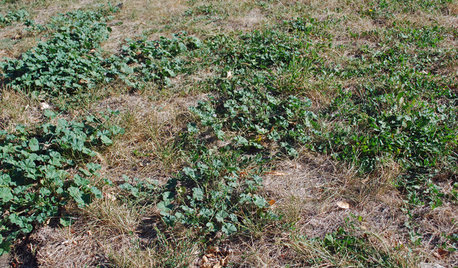

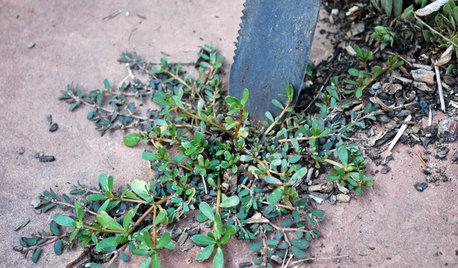
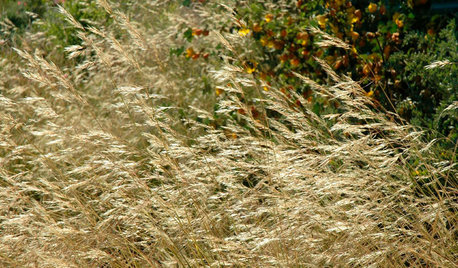



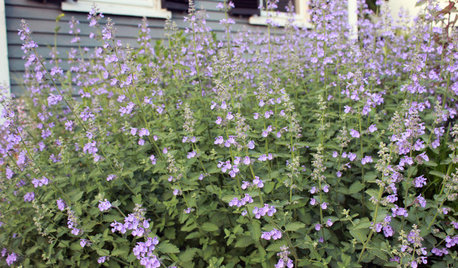
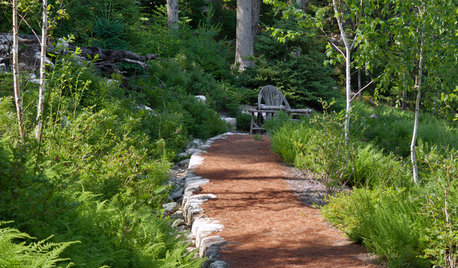
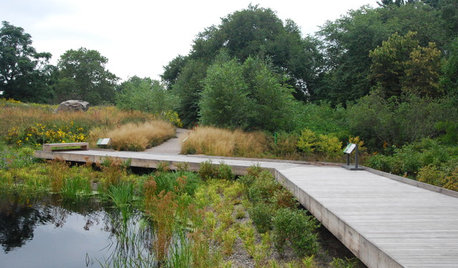






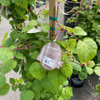
gardengal48 (PNW Z8/9)